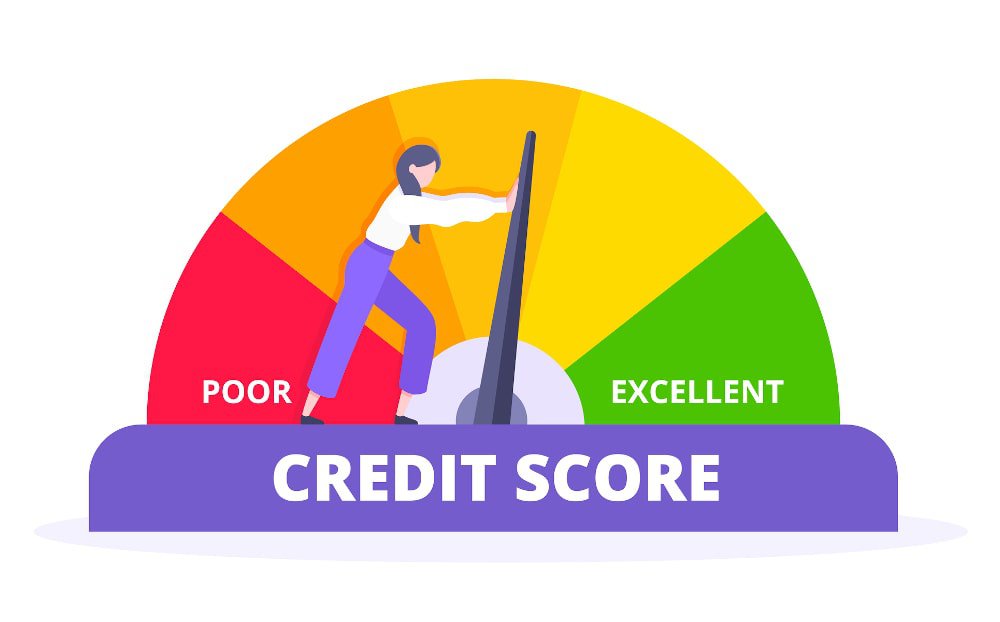What Is a Good Credit Score in Canada?

In Canada, credit scores range from 300 to 900, with your number significantly impacting financial opportunities such as mortgages. A higher score increases your likelihood of approval and can secure you a lower interest rate .
So, what is considered a “good” credit score in 2025? And how does it vary across lenders, provinces, and loan types? This guide breaks down everything you need to know about how credit scores work and how your score affects your ability to buy a home.
What Credit Score Range Is Considered Good in Canada?
Canadian credit score ranges will vary across financial institutions and lenders, but typically fall close to the following categories:
| Credit Score | Rating | Meaning |
|---|---|---|
| 800-900 | Excellent | Top-tier borrower with access to best rates |
| 740-799 | Very Good | Strong borrower with preferred terms |
| 680-739 | Good | Qualifies for most loans and mortgages |
| 600-679 | Fair | May face higher rates or require conditions |
| Below 600 | Poor | Considered high-risk by most lenders |
Again, it is important to note that these ranges will vary. According to Equifax, a score above 660 is generally regarded as “good,” while 700+ opens the door to premium financial products. TransUnion echoes this, citing 650–700 as a reliable threshold for approval in most lending situations.
How Is a Credit Score Calculated in Canada?
Credit scores are calculated using five main factors, each of which has a certain weighting towards your overall score:
- Payment History (35%) – Making on-time payments on credit cards, loans, and bills
- Credit Utilization (30%) – How much of your available credit you use
- Credit History Length (15%) – The age of your oldest account
- Credit Mix (10%) – Variety of credit products (loans, lines of credit, credit cards)
- New Inquiries (10%) – Recent applications for new credit
Tools like Equifax and TransUnion provide free access to your score annually, helping you track your financial health responsibly.
Why Does Your Credit Score Matter When Applying for a Mortgage?
Mortgage lenders use your credit score to assess risk and reliability. It is a measure that allows them to evaluate how likely you are to repay your loan on time and manage debt responsibly. A higher score typically leads to:
- Better interest rates (which can save you thousands)
- More flexible down payment requirements
- Faster approvals
Below is an example of mortgage rate differences depending on your credit score (2025 estimates):
| Credit Score | Approx. Mortgage Rate |
|---|---|
| 760+ | 4.79–4.99% |
| 700-759 | 5.09–5.29% |
| 660-699 | 5.39–5.69% |
| 600-659 | 6.00%+ |
Lenders also factor in income, debt ratios, and employment but your credit score remains a key metric for the approval process.
What Is a Good Credit Score to Buy a House in Canada?
To qualify for a mortgage in Canada, you generally need a minimum credit score of 600. However, different mortgage types have different requirements:
- Insured Mortgage (with CMHC insurance): 600+ minimum
- Conventional Mortgage (20%+ down): 620–650+
- Prime lenders (banks, major credit unions): 680+ preferred
- Alternative/private lenders: May accept 500–600 but with higher rates
The minimum credit score to buy a house will vary greatly by lender but also by geography . The table below is an example of minimum scores by city and lender type.
| City | Prime Lender | Alt Lender | Private |
|---|---|---|---|
| Toronto | 680-700+ | 600-650 | 500+ |
| Vancouver | 700+ | 620-660 | 500+ |
| Calgary | 660-680 | 600+ | 500+ |
Does Your Credit Score Need to Be Higher in Ontario?
Ontario’s competitive housing market may lead some lenders to enforce slightly stricter credit requirements, especially in the GTA. The average credit score in Ontario last year was ~693 with most GTA lenders prefering scores of 700+ for optimal terms. Rural lenders or smaller towns may accept 660–680.
“In Toronto’s hot market, anything under 680 often pushes borrowers into higher-rate tiers or alt-lending channels,”
- Shaunese Lawrence | Clover Mortgage Level 2 Agent
What’s the Difference Between a “Good” and “Very Good” Credit Score?
While both “good” (680–739) and “very good” (740–799) credit scores grant access to mortgages, the higher tier comes with extra perks:
| Good (680–739) | Very Good (740–799) |
|---|---|
|
|
Although the differences may seem small, improving your score from 700 to 750 could save tens of thousands over a 25-year amortization period.
How Can You Improve Your Credit Score Fast in Canada?
There are a few ways in which you can improve your credit score:
- Pay bills on time – even one missed payment can hurt
- Lower credit utilization – aim for below 30%
- Increase credit limits – without increasing your balance
- Don’t close old accounts – age of credit matters
- Use credit monitoring apps – e.g. Borrowell, Credit Karma, or Equifax
Although credit improvements may not be instant, consistent positive actions can lead to noticeable changes within a few months.
How Do Lenders View Credit Scores Differently?
As mentioned earlier, not all lenders interpret your credit score the same way. While your score is a key indicator of financial reliability, most lenders assess your entire borrower profile, which includes factors like income stability, debt levels, employment history, and overall financial behaviour.
Banks
Traditional banks tend to have the strictest criteria. They generally require a credit score of 680 or higher, along with full proof of income, low debt-to-income ratios, and a clean credit history. Banks often prefer borrowers with stable, long-term employment and consistent payment behaviour.
Credit Unions
Credit unions are often more flexible than big banks, especially if you have a strong relationship with them or are part of a specific membership group. While they still prefer scores above 650–680, they may consider factors like community ties or steady banking history to approve borderline cases.
Private Lenders
Private or alternative lenders typically work with borrowers who fall outside the criteria of traditional lenders. They may approve credit scores as low as 500–600, but this comes with higher interest rates, shorter loan terms, and stricter repayment conditions.
Regardless of the lender type, credit score is only one part of the equation. Lenders will also evaluate your savings history, job stability, monthly obligations, and any recent negative marks when deciding to lend to you.
Is There a Perfect Credit Score – And Does It Matter?
Yes, the highest possible credit score in Canada is 900, but anything above 800 is already considered elite.
| Score | Impact |
|---|---|
| 800-900 | Best rates, instant approval |
| 740-799 | Very favourable terms |
| 680-739 | Solid offers, some limitations |
The truth is that scoring 850 vs. 900 won’t make a noticeable difference in mortgage terms. A high credit score offers diminishing returns past a certain point.
What Are Common Myths About Credit Scores in Canada?
Let’s bust a few popular misconceptions:
-
Myth:
Checking your own credit lowers your score
Truth: Soft checks (you checking your own score) do not affect your credit -
Myth:
You need to carry a balance to build credit
Truth: Paying in full each month is best for increasing your credit score -
Myth:
Income affects your credit score
Truth: Your score reflects credit history, not income level
Staying informed about how credit scores actually work can help you avoid costly mistakes and focus on what really matters.
How Long Does It Take to Rebuild a Credit Score?
Improving your credit score depends on the damage done. Here's a general idea of how long it may take to fully recover from errors:
| Event | Time to Recover |
|---|---|
| Late Payment | 6-12 months |
| Maxed Credit Card | 3-6 months |
| Collection Account | 1-2 years |
| Bankruptcy | 5-7 years |
Example: After a missed mortgage payment, improving your score from 620 to 700 could take around 12–18 months, assuming consistent good habits.
What’s the Ideal Credit Score for Getting the Best Mortgage Rates?
To qualify for the most competitive mortgage rates in Canada in 2025, you should aim for a credit score of at least 760. Borrowers in this range typically receive the best available interest rates which can translate into significant long-term savings.
If your score falls between 700 and 759, you’re still in good shape and may qualify for slightly higher, but still good rates, depending on the lender. A score between 660 and 699 can still get you approved, but you’ll likely face slightly higher rates.
Borrowers with scores below 660 usually face rates above 6%, and may need to explore alternative lenders or provide additional documentation to secure a mortgage.
Even a small difference as small as 0.5% in your interest rate can cost you over $10,000 in extra interest across a typical mortgage term, making a higher credit score well worth the effort.
Can You Get a Mortgage With a “Fair” Credit Score?
While you can still get a mortgage with a fair credit score, there are trade-offs. Options with a 600–660 Score:
- Use a co-signer to strengthen your application
- Work with alternative lenders (B lenders)
- Consider larger down payments to offset risk
- Be prepared for higher rates (6–9%)
Always consult a broker to explore risk-managed solutions and compare lender flexibility.
Conclusion: What Credit Score Should You Aim For in 2025?
Ultimately, a score of 700 or higher provides the most financial flexibility in 2025. Whether you’re buying your first home, refinancing, or consolidating debt, a good credit score is your ticket to better terms and greater peace of mind.
Here’s your quick reference guide:
| Goal | Target Credit Score |
|---|---|
| Get approved for a mortgage | 660+ |
| Secure competitive mortgage rate | 700–740+ |
| Access best rates | 760+ |
| Alternative lending minimum | 500-600 |
Need help qualifying for a mortgage or improving your score? Contact Clover Mortgage brokers today to speak with an experienced advisor.
FAQ
How much credit score is considered “good enough”?
A credit score of 660 or higher is generally considered “good enough” for most loans and mortgage approvals in Canada. It signals to lenders that you’re a reliable borrower, though you may not qualify for the best available interest rates until your score reaches 700+. That said, the specific threshold can vary depending on the lender and loan type.
What number is actually a good credit score in Canada?
A credit score of 680 or above is widely recognized as good in Canada. Once you reach 700, you’ll likely qualify for better loan terms and lower interest rates. Scores above 740 are considered very good, and anything over 760 is typically enough to unlock a lender’s best offers.
How do I maintain a good credit score in Canada long-term?
To maintain a strong score over time, focus on paying bills on time, keeping your credit card balances low (under 30% of your limit), and avoiding frequent new credit applications. It also helps to keep older accounts open and use a mix of credit types. Regularly checking your credit report for errors or fraud is a good habit as well.



